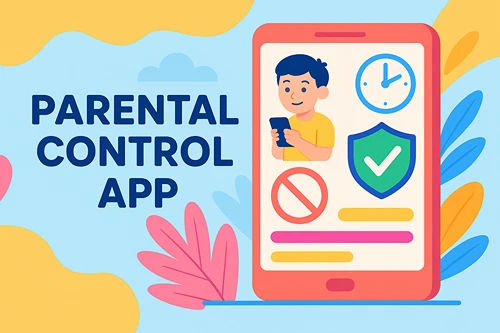How to Prepare for a Career in Journalism: Guide for High School Students
Journalism is a broad, exciting field that lets you tell important stories and share information that matters. A career in this field has many avenues you can focus on that line up with your interests. These areas include reporting for radio or television, news anchoring, working as photojournalism, and writing for a newspaper.
The skills needed for success vary, but there are basics that are universal for all aspects of journalism.
Image by artursafronovvvv on Freepik
Hopefully, the points we explore here will help you decide if this is indeed the career for you, as well as set you on the right path to gain the experience required. If you’re a high school student interested in a journalism career, here are some steps you can take to start your journey:
1. Develop Strong Writing Skills
Writing is the backbone of journalism. Practice writing as often as possible—whether through school assignments, blogging, or journaling. Pay attention to clarity, sentence structure, and grammar. You can even start writing for your school newspaper or online platforms to get real-world experience. See what interests you. Explore political reporting, sports writing, and investigative journalism.
2. Stay Informed
Journalists need to know what’s happening in the world. Make it a habit to read news from reputable sources daily. Don’t rely solely on television news. The format requires information to be condensed and edited in to sound bites. And pay attention to publicly funded radio and television which provides focused programing on specific issues.
3. Learn to Research and Fact-Check
A good journalist relies on facts. Learn to verify information and research thoroughly. You can start by working on school projects or writing articles where you ensure every statement is accurate. This skill will set you apart as a trustworthy source of information.
4. Get Involved in School Media
Join or start your school’s newspaper, magazine, or online blog. These platforms provide hands-on experience in interviewing, writing, and editing—key components of journalism. Even if your school doesn’t have a formal newspaper, you can start your own online publication of seek our online publications that will publish your work.
5. Hone Your Interviewing Skills
Journalists frequently interview people to gather insights and perspectives. Start practicing by interviewing classmates, teachers, or local figures. Learn how to ask open-ended questions that lead to thoughtful answers. Interviews always research a topic so that they at least know the basics. This ensures intelligent questions that dig deeper into issues.
6. Take Journalism-Related Classes
If your school offers journalism, creative writing, or communications classes, be sure to take them. These courses will provide a solid foundation in writing, ethics, and media literacy, all of which are crucial for a future journalist. Research and compare available academic programs and ensure you have the high school courses and grade to apply.
7. Seek Mentorship or Internships
Look for opportunities to connect with local journalists or media professionals. Some newspapers and media outlets offer internship programs for high school students. Internships provide valuable experience and introduce you to the realities of working in journalism.
8. Build a Digital Portfolio
As you write more articles and gain experience, start compiling your work into a digital portfolio. This can be a simple website or blog showcasing your best work. A strong portfolio can help you stand out when applying for internships or college journalism programs.

Image by pvproductions on Freepik
9. Learn Digital Tools and Multimedia
Today’s journalists use a variety of digital tools. Learn how to create and edit videos, podcasts, and social media content. Being comfortable with these skills will prepare you for school, as well as make you more versatile and competitive in the job market.
10. Stay Curious and Open-Minded
Journalism is about uncovering stories, and that requires curiosity. Stay open to learning new things, meeting different people, and understanding various perspectives. The more you explore, the better journalist you’ll become.
Finally, anything you can do to learn organizational skills will be of great benefit. Investigating stories and fact checking sources will be overwhelming if you don’t have a system to properly manage all the details that go into writing or reporting on an important issue.
Journalist vs Editorialist
There are many voices out there in the media and online, just as there are numerous and diverse mediums of communication. So, we thought it would be a good idea to clear up any confusion students may have about a career in journalist, as compared with becoming an editorialist or commenters. In politics, they are often referred to as political pundits.
These are all reputable positions. However, it’s important to note that the key difference between a journalist and an editorialist or commentator lies in their roles and responsibilities within the media.
- A journalist’s primary role is to report facts. They gather, verify, and present information in an unbiased manner. Journalists strive for objectivity and neutrality, focusing on delivering accurate news without inserting personal opinions or biases. Their work is rooted in investigation, interviews, and research, with the aim of informing the public.
Examples of journalists include news reporters, investigative journalists, and correspondents.
- An editorialist or commentator, on the other hand, provides opinion-based content. They analyze, interpret, and express personal viewpoints on news events, social issues, or public policies. Unlike journalists, editorialists and commentators don’t need to be neutral; their job is to offer perspectives, critique, or advocate for certain positions.
An editorialist typically writes editorials for newspapers or media outlets, while a commentator may share their views through TV, radio, or online platforms.
In Closing
Reputable journalists and media outlets are a beacon of truth in society. They provide accurate information that helps people stay informed and make decisions. Misinformation can spread rapidly, the role of trustworthy journalism is vital. These professionals not only report the facts but also uphold ethical standards, offering balanced perspectives that contribute to a well-functioning democracy.
Still, journalists are still human. Accountability within the industry is paramount. And ultimately, freedom of the press within countries is essential in uploading our values as a society to ensure all journalists and the media can write and report without punity.





